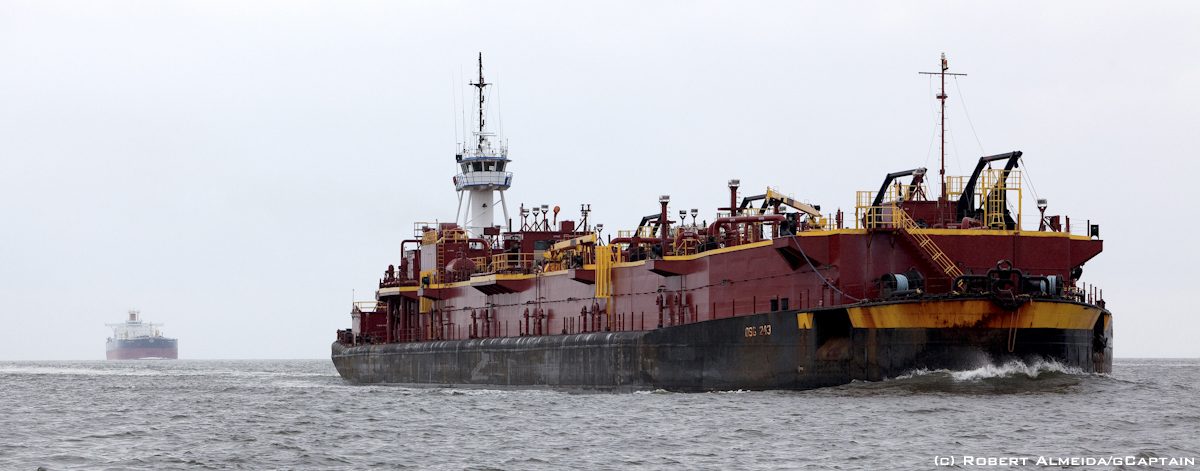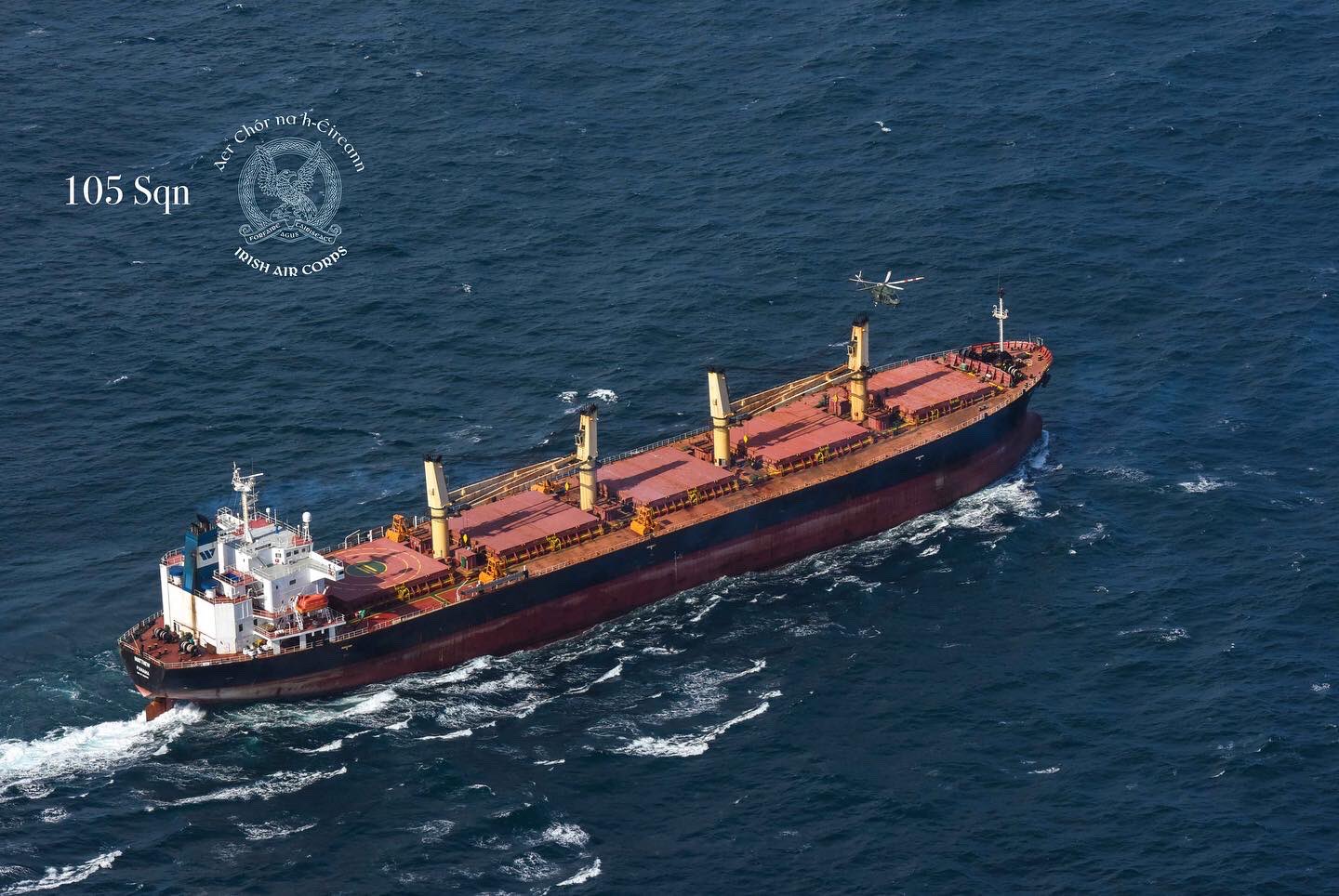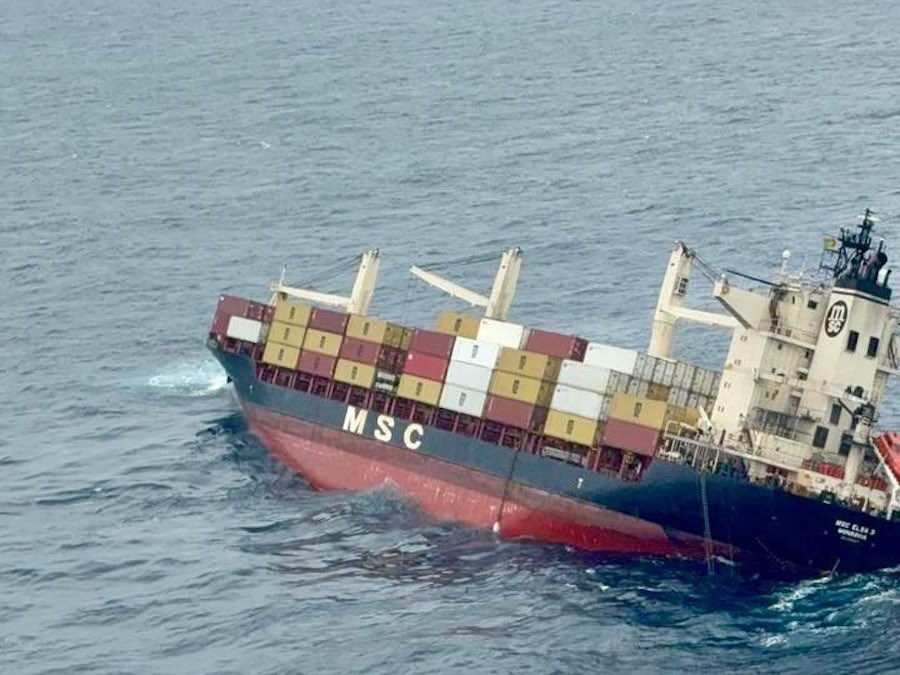The OSG 243 ATB is pushed north up the Delaware Bay
Overseas Shipholding Group, Inc. (NYSE: OSG), one of the world’s largest publicly traded tanker companies in the world carrying nearly 11 million DWT with a fleet of 112 ships, reported results for the second quarter of fiscal 2012 ended June 30, 2012.
Morten Arntzen, President and CEO commented: “Following on the slowdown of the world economy, all our international flag markets turned down during the second half of the second quarter, with rates in our MR segment being under particular pressure, resulting in a disappointing quarter. Rates remain challenging today. On a bright note, our U.S. Flag unit continued to perform ahead of plan and the prospects for this business improved following the announcement of the sale of Conoco’s Trainer refinery to Delta Air Lines and Sunoco’s transfer of its Philadelphia refinery to a joint venture with Carlyle.”
Financial Performance
For the quarter ended June 30, 2012, OSG reported TCE revenues of $210.0 million, an increase of $2.7 million, or 1%, from $207.3 million in the 2011 quarter. Total revenue days increased quarter-on-quarter by 576 days, reflecting new deliveries of International and U.S. Flag product carriers and the return to service of the previously laid-up U.S.-flagged ATB, the OSG 214.
After a strong start to the second quarter, international flag medium range (MR ) tanker spot rates fell sharply in May, leading to an average spot TCE rate of $10,500/day for the quarter, a reduction of 30% from the prior year quarter. This decline offset improvement in TCE rates earned in the U.S. Flag unit and by VLCCs and Suezmaxes.
International Products
Fleet expansion drove a 14% increase in revenue days which was offset by spot rate weakness, leading to a $7.0 million decrease in TCE revenues. A $550/day increase in the average segment TCE rate led to a $2.8 million increase in international crude TCE revenues to $79.0 million.
Continued net reduction of time chartered-in tonnage was offset by an increase in spot charter-in days in the Aframax lightering business resulting in little change to crude revenue days.
Revenue was negatively impacted by a 30% decrease in the spot TCE achieved in the MR class as weaker oil demand in both Europe and the U.S. led to a reduction in movements within the Atlantic basin, where OSG’s fleet is concentrated. This weakness was compounded by an influx of product carriers from Far Eastern markets seeking the higher rates available in the Atlantic trades. This negative impact on product revenues was partially offset by a 14% increase of 475 revenue days reflecting the delivery of two owned and one time chartered-in MRs and two owned LR1s since the beginning of the second quarter of 2011.
US Flag/Jones Act
U.S. Flag TCE revenues increased by $8.0 million to $83.8 million on higher TCEs in each Jones Act segment and a 4% increase in revenue days reflecting the return to service of the OSG 214. Net losses for the quarter ended June 30, 2012 were $55.3 million, or $1.83 per diluted share, compared with a loss of $37.3 million, or $1.24 per diluted share, in the same period in 2011.
Since the start of the second quarter of 2011, one bareboat chartered-in product carrier delivered into the tanker fleet, and one ATB delivered into the Delaware Bay lightering fleet to replace an older ATB that was subsequently retired. Realized TCEs increased on U.S. Flag product carriers as time charters were added or replaced at sequentially higher rates, and also rose on ATBs as a result of higher spot rates and improved utilization.
Cash was $227 million as of June 30, 2012, however…
Mr. Arntzen comments: “In July we drew down the full remaining availability under our revolving credit facility and now have cash reserves of over $550 million. We believe this was a prudent step given the ongoing difficult market conditions. We are in discussions with our main banks to put in place long-term financing that provides sufficient liquidity to manage through an extended downturn in our International Flag tanker markets. At the same time, we are pursuing other liquidity raising options available to the company.”
Segment Activity
Crude Oil
- During May 2012, the Overseas Yellowstone and the Overseas Josefa Camejo were transferred from the Aframax fleet trading in the Aframax International pool to the Aframax lightering fleet to replace the Overseas Rebecca and the Overseas Ania, which were redelivered to their owner after completion of their respective time charters.
- On June 1, 2012, OSG took delivery of two Aframaxes, the Yasa Golden Bosphorus and the Yasa Golden Marmara, under 15-month (minimum term) time charters for service in the Aframax International pool.
- During June 2012, OSG redelivered the Overseas Sophie, a time chartered Aframax, to its owner.
- In the year to date, OSG has redelivered 1.9 VLCCs, 2.9 Suezmaxes and 4.0 Aframaxes previously chartered-in at rates above those earned in the spot markets in 2011. Over the balance of 2012, the Company is scheduled to redeliver another 1.2 VLCCs, 0.9 Suezmaxes and 1.0 Aframax remaining on such higher-rate time charters. The expiry of these charters-in and/or the rechartering of replacement tonnage at current lower rates is expected to have a significant positive impact on the results of OSG’s chartered-in Crude fleet going forward.
Products
- Of the Company’s six LR1s, three are trading in the Panamax International pool, two are on time charter and one is trading in the clean Panamax (LR1) market.
U.S. Flag
- OSG’s Jones Act product tanker fleet remains fully committed under time charters, with renewals in the year 2012 to date at rates in excess of expiring rates and each successive renewal rate higher than the last. Four of OSG’s products ATBs have secured short term time charters with expiries from late 4Q2012 to early 2Q2013.
- In June, Delta Air Lines closed on its acquisition of the Trainer refinery, which had been idled since September 2011. After previously announcing that they would idle the main processing units of its Philadelphia refinery in August 2012 if the facility could not be sold, Sunoco announced in July that it would form a joint venture with The Carlyle Group to own and operate the refinery.

 Join The Club
Join The Club











